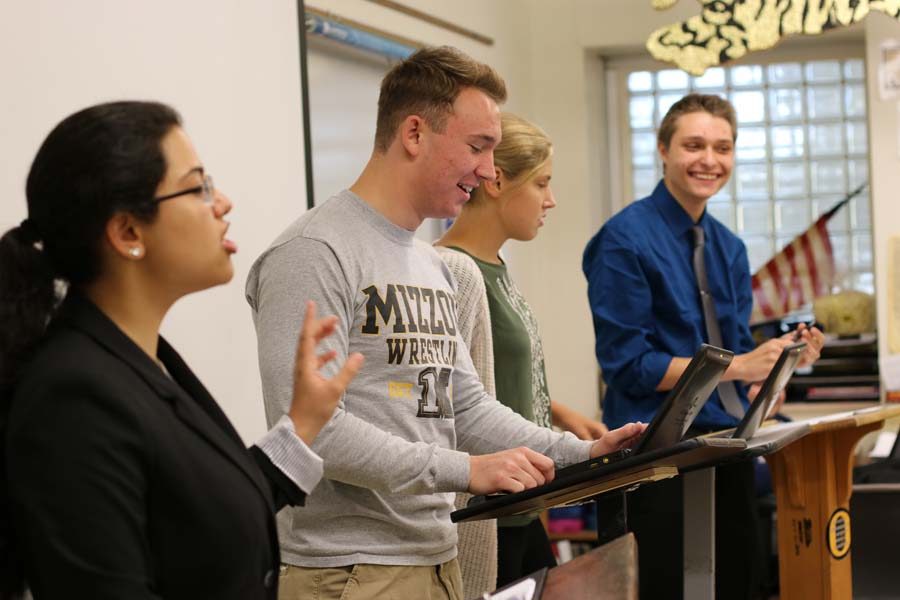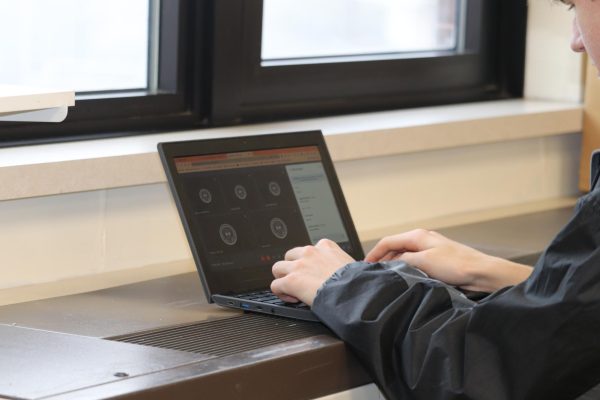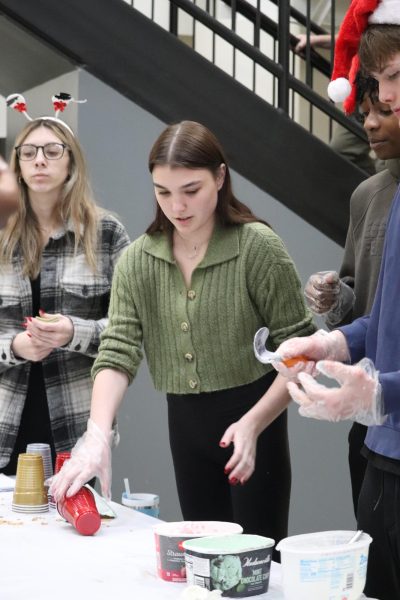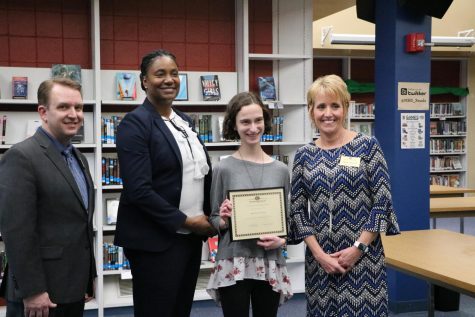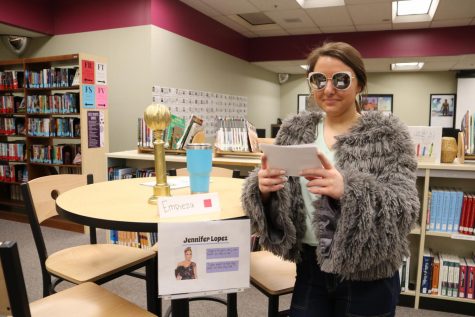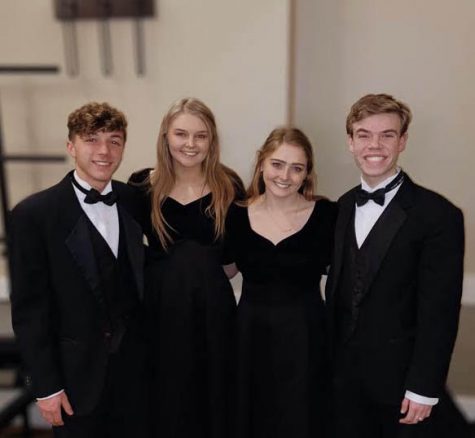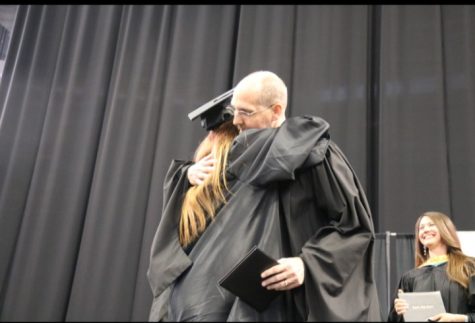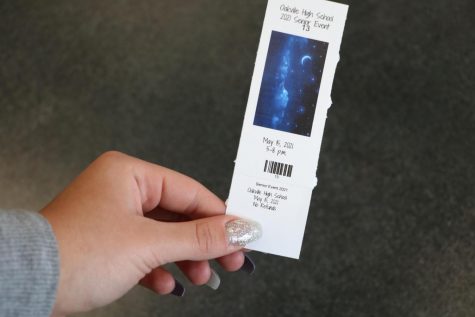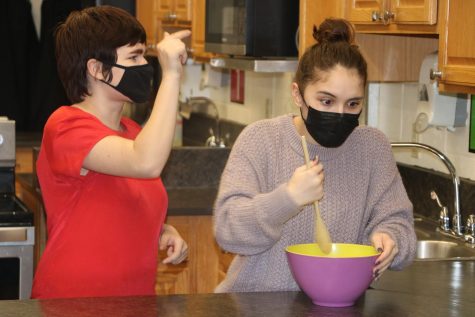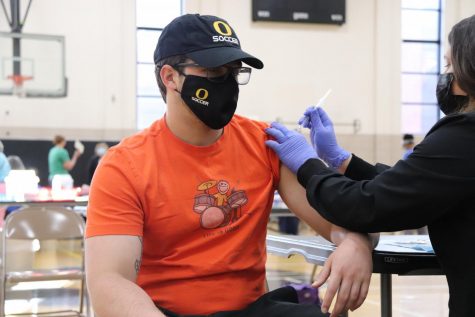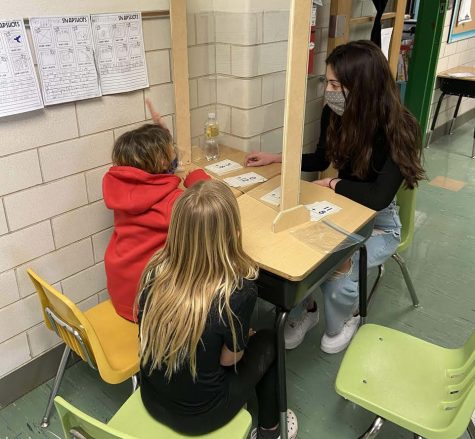AP Government mock Congress
“Order in the court!” Hiba Al-Ramahi (12) declares as Mrs. Kara Beck’s AP Government class discusses legislation on repealing ObamaCare. Al-Ramahi is the class’s Speaker of the House during a Congressional Simulation.
Both Beck’s first and seventh blocks took a lesson on how Congress operates by reenacting it. The two classes are disproportionate in size, first block has 11 people while seventh block has 18. Due to a bigger chamber, seventh block was named the House of Representatives and first block took the place of the Senate.
Each class first nominated members of their party to take charge as more involved officials. For first block the following were elected: Aaron Mohabbat (12) as President Pro Tem, Sohrab Azad (12) as Majority Leader, Paul Auer (12) as Majority Whip, Nick Delucia (11) as Minority Leader, and Connor Bradenberg (12) as Minority Whip. For seventh block, the Speaker was Al-Ramahi, the Majority Leader was Veronica Mohesky (12), the Majority Whip was Simone Hanna (12), the Minority Leader was Sam Mahacek (12), and the Minority Whip was Austin Fortuny (12).
After completing the formation of Congress, each chamber was given the role of proposing legislation to comply with each member’s district or state needs. Each student created a model bill that accompanied a budget plan and impacts of the piece. All legislation was first brought to chamber committees.
“I’m glad I got to be a head of a committee. I got to hear issues I believe in. I also learned how Congress worked more in depth,” Emma Zahner (12), Energy and Environmental Committee Chair, said.
If a bill draft passed out of the committee it was then brought to the “floor” for the entire chamber to discuss and inquiry. By majority rule, the bill would either die or be passed on to the other chamber for review. Due to time difficulties, however, the passing bills were unable to be addressed by the other chamber.
Of all 11 bills written in the Senate, only two passed through to the House while four of the 18 passed in the House onto the Senate.
Through the simulation, students were able to learn first hand how to propose a bill and how difficult it is to get them passed. Kaitlyn Eppers (11), House of Representatives member, expresses how she felt about the project.
“Doing the model Congress simulation was really interesting. You got a first hand experience in a process that normally you would assume is boring and uninteresting. Getting to be part of it and make our own bills made the process fun and exciting and helped me learn a lot about how the legislative process works,” Eppers said.

I dream of the ability to pick up and go, to travel and experience the world in all aspects. I dream of going to cities I’ve only ever heard of and meeting...


